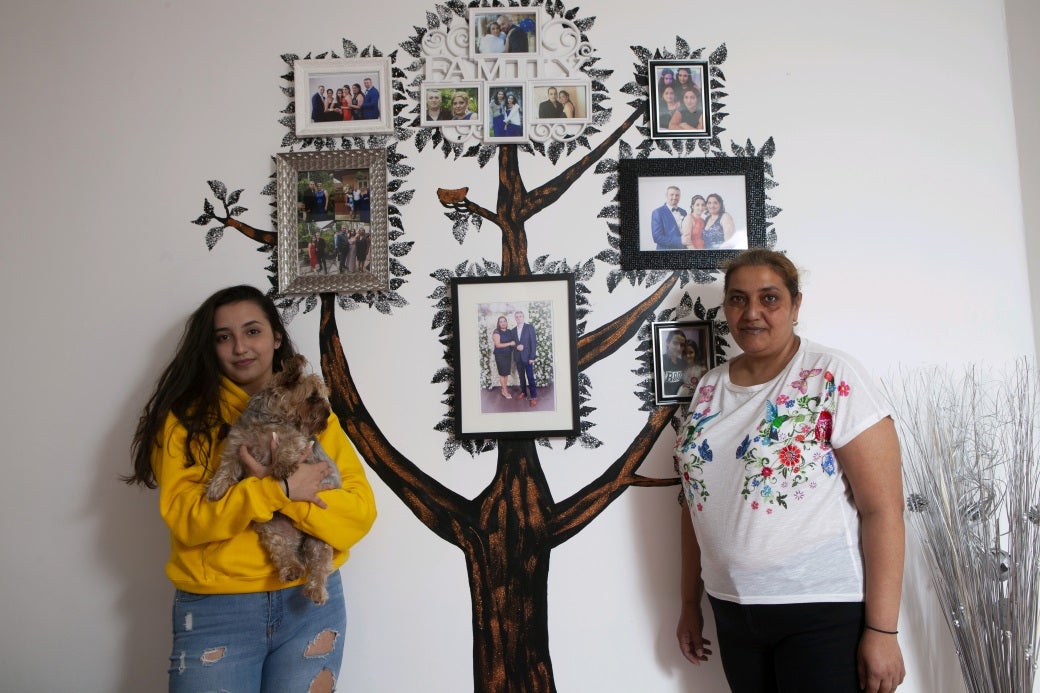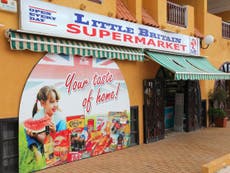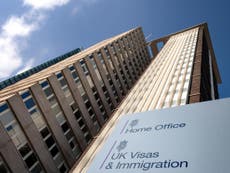From coronavirus to the hostile environment, the chronically overlooked Roma community has been completely abandoned
We have ties of kinship which help us even during times like this. But we also need the government and local authorities to do a lot more than they currently are, writes Mihai Calin Bica


Life after lockdown hasn’t been easy to navigate for most. For the Roma community, it has never been under more pressure.
As families face financial insecurity, a disproportionate risk of infection and reduced access to education and services, the UK’s Roma community has also been met with an increase in discriminatory attitudes. Serving as scapegoats for society’s ills is a burden that the Roma have sadly suffered from throughout history. Yet as we’re attacked, demonised and targeted by racists, media representation doesn’t seem to be getting better either.
In early April this year, Channel 5 broadcast the latest series of Gypsies on Benefits and Proud. The show trivialises the lives of migrant Roma and mocks Roma and eastern European culture, with no concern for the communities it targets. No wonder then, our community is often too scared to talk to the media.
During this time of lockdown – when all of us are vulnerable – we need to come together, increase our understanding of each other, find common ground and common decency. Like other minority groups, our community is suffering. Flavius, a young Roma I spoke to working in the construction industry, has been deeply affected.
A few weeks ago, his mother started to feel poorly. Not wanting to be a burden on Flavius, she insisted it was “just the flu”. On Saturday 28 March, she began to feel much worse. The next morning, his mother was admitted to the hospital. The doctors decided to put her in a medically induced coma.
On 4 April, Flavius got a call. “Doctors told us that my mother will not survive. No one, absolutely no one, should go through this. My mother, Luminita, died on 4 April 2020, losing the fight against Covid-19. She was 42 years old.”
But the heartache didn’t stop there. Flavius had to struggle to return his mother’s remains to her homeland of Romania: an almost impossible feat during lockdown. I can’t imagine what this young man is going through right now. Sadly, he’s not the only one.
Covid-19 has dramatically exposed and exacerbated the inequalities that exist in our communities. There is overwhelming evidence that its impact is disproportionally felt by Bame communities across the UK. And this includes Roma.
Having fled eastern and central Europe, Roma have tried to free themselves from institutional racism, segregated education, destitution, and acute inequalities in employment, housing and health steeped in their long history of discrimination with 500 years of slavery and genocide during the Second World War.
There are an estimated 200,000 Roma in the UK, coming from different eastern European countries. And these culturally diverse and vibrant communities all share the common experience of discrimination.
With this and the Covid-19 pandemic, the community is set for a fight they simply cannot win. In European Union countries, data on life expectancy for the Roma population indicates estimates ranging from seven to 20 fewer years of life. At the same time, Roma in the older age groups (65+) report a much steeper increase in chronic disease-related problems (70 per cent compared with 56 per cent for non-Roma).
Unfortunately, in some places, the community has been hit hard by coronavirus. Diana Blaj from Ideea Rom Association, a Nottingham-based Roma organisation, reports that about 40 of the 400 Roma they’re working with have been infected or had symptoms. She admits that whatever help the organisation has comes from local authorities – but more support is needed. “Some days I have dozens of missed calls and we just simply do not have capacity to support more.”
Most Roma in the UK live in poor areas and the majority are renting in the private sector, from unscrupulous or rogue landlords. Even under lockdown many are threatened with eviction.
Some of the less fortunate Roma are sleeping rough. The Combined Homelessness and Information Network 2018-19 report for Greater London, recorded a total of 8,855 rough sleepers. Of these, as many as 7 per cent were recorded as Gypsy/Roma/Travellers. Although there is support available, we have to ask ourselves in this time of pandemic: are there enough efforts in place to make sure the Roma are accessing these services?
Roma are affected economically too. Working as frontline workers in care, cleaning and food production sectors, many Roma are overexposed to the virus. A number have been forced to give up work to care for family or elders, or become unwell or lost their jobs. One such example is Cosmin Vlad.
After working for years in a warehouse and trying his luck in business, on 1 March, Vlad opened a Romanian/Roma restaurant in Nottingham. By 18 March he was forced to close down.
Last week, a Roma who called the Roma Support Group support line for help, said: “I have been working in this factory without a day off for the last three years. When this crisis started they sent 200 of us home. Deal with your agencies, they said. No information was provided to us and now I don’t know what to do.”
When it comes to benefits, the question of accessibility is still being ignored. How many Roma have equipment or know how to access universal credit applications in the first place?
Local authorities should have in place plans to engage the Roma community. Just like everyone else, Roma need information and support to access services. And they should be delivered in a language and through channels the community can reach.
Furthermore, our children are missing out on education.
An initial assessment done by my charity, the Roma Support Group (RSG), shows hat about 70 to 80 per cent of the children we support are missing the equipment needed to access the online platforms. Authorities should ensure that Roma children have all resources needed to continue the education process.
And, on top of all that, the Brexit threat is still there. We still have to make applications under the EU Settlement Scheme. Fort those who don’t have passports, it is now impossible to apply. In normal circumstances, people relying on national IDs could make their applications and send their ID to the Home Office later on. Now the Home Office is asking people not to send documents to them due to Covid-19. Subsequently, those with only national IDs, without a readable chip, cannot make applications at all.
But while Roma are a community who often don’t have access to all the vital information they need to protect their own health and the health of their loved ones, our own community has risen to the challenge.
Ciprian Jacheanu, leader of the Roma church Rugul Aprins in Dagenham, east London, says members from his church have volunteered to support community members affected. They are delivering food parcels and call those affected to provide some comfort.
In Glasgow, a group of six Roma, working at local charity Community Renewal, are delivering weekly food parcels to 47 Roma families. They are also providing accessible information to Roma through social media.
Meanwhile RSG has been working closely with charities like Community Renewal in Glasgow and Europia in Manchester to provide information regarding Covid-19. RSG has made informative Covid-19 videos as well as other materials in the relevant languages, all of which are available for the community and professionals supporting it. We are also helping those affected access financial and emergency support as well as supporting children to continue learning.
And Alexandra Bahor, a Roma activist in Liverpool, is helping to feed around 300 vulnerable families with weekly food parcels supported by local decision makers and authorities through her charity.
Other Roma are key workers, who run a higher risk of contracting Covid-19 – for example, Peter Kotlar, who works in the Specialist Operation Response Team in Crewe, Cheshire, dealing with Covid-19 incidents. He also supports community volunteering for the Gypsy Roma Traveller Police Association, making sure police deal with any discrimination cases against the Roma community. Without efforts like these, the current situation would undoubtedly be harder to manage.
Adversity makes you strong, people say. Well, Roma communities are strong. We have ties of kinship and family which help us even during times like this when the enemy is invisible. But we also need the government and local authorities to do everything they can, and the media too, to help us have the same access to health information and services as everyone else does. We are not asking for special treatment. We want fairness.
Mihai Calin Bica is a campaigning and policy worker for the Roma Support Group







Join our commenting forum
Join thought-provoking conversations, follow other Independent readers and see their replies